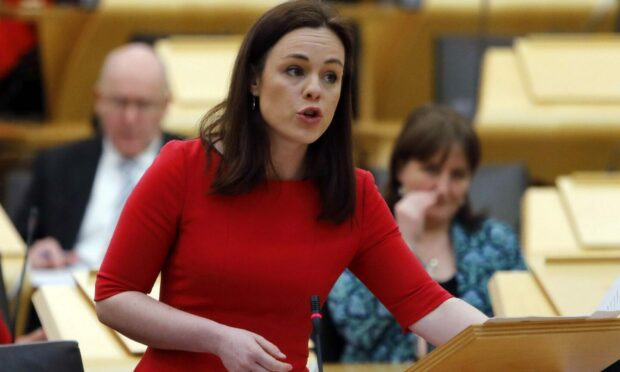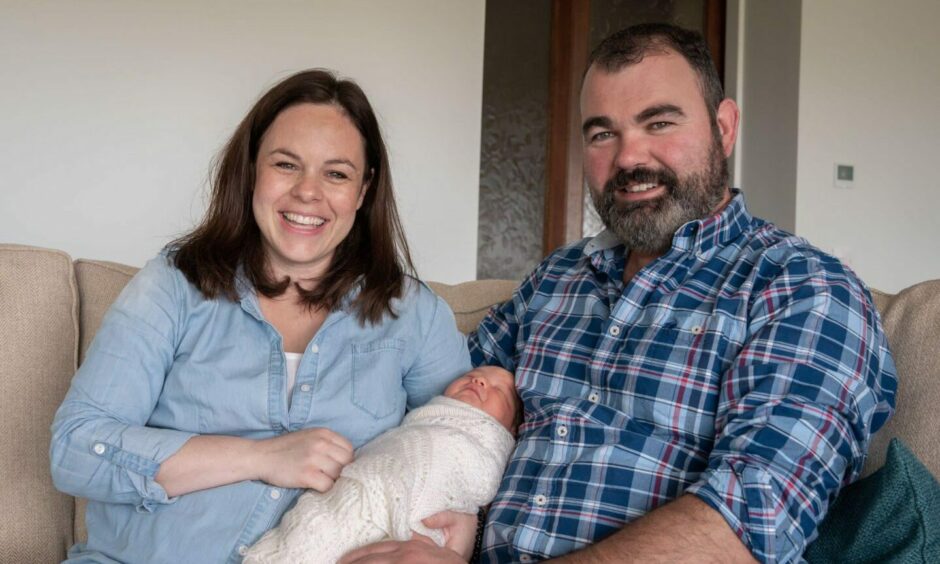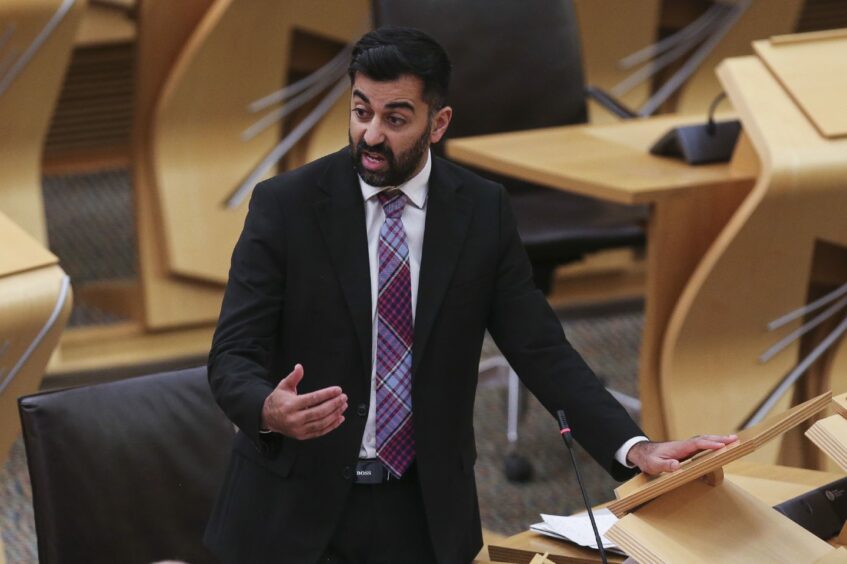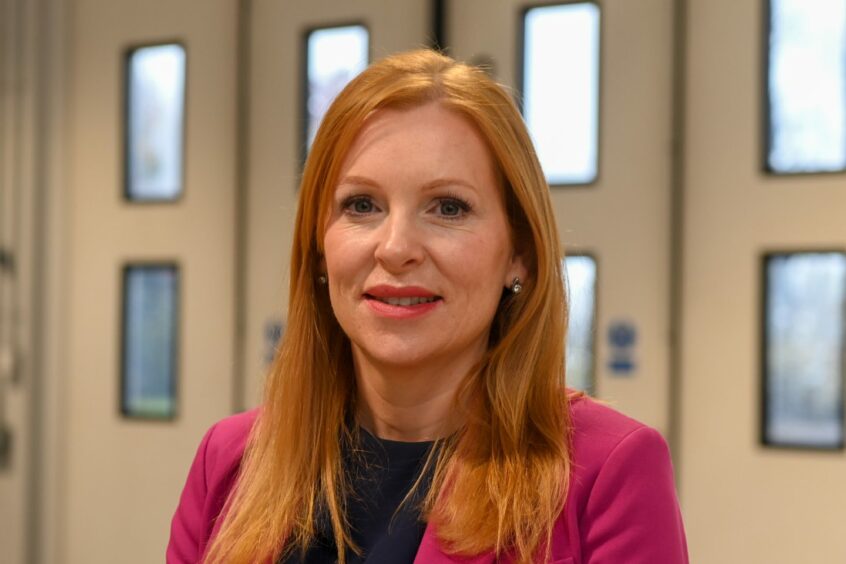Kate Forbes revealed she would not have backed controversial changes to gender recognition on the day she launched her campaign to be the next first minister of Scotland.
The SNP finance secretary broke her silence on the controversy hours after announcing she will return from maternity leave early to stand in the contest.
The gender recognition changes, which include easier “self-identification” for trans men and women, were rushed through Holyrood before Christmas while Ms Forbes was on leave.
Since then the UK Government has blocked it from becoming law.
In an interview with the BBC, she said the UK Government should not overturn Scottish legislation.
“But I think on this, seek legal advice and recognise it is not a priority right now for the people of Scotland, who are focused on other things,” she added.
Announcing her campaign launch earlier, she said “the nation and the Yes movement are at a major crossroads”.
She added: “I cannot sit back and watch our nation thwarted on the road to self-determination. Our small, independent neighbours enjoy wealthier, fairer, and greener societies – and so can we.”
‘Rising star’
Ms Forbes has long been seen within the party as a rising star since her election win in 2016.
She was quickly parachuted into the finance brief in 2020 after disgraced Derek Mackay was forced to resign.
In August last year, she and her husband Ali MacLennan announced the birth of their daughter Naomi at Raigmore Hospital in Inverness.
Returning to frontline politics, the 32-year-old will stand against Health Secretary Humza Yousaf and ex-minister Ash Regan, who announced their leadership campaigns at the weekend.
Culture Secretary Angus Robertson, a former MP in Moray and an early bookies’ favourite for the job, announced on Monday morning that he will not stand.
Mr Yousaf, a Glasgow MSP who has a family home in Dundee, set out his pitch for the top job at an event in Clydebank.
Ms Regan, MSP for Edinburgh Eastern, quit government in protest at Ms Sturgeon’s gender reform package.
Ms Forbes avoided having to vote on that law while on maternity leave. However, she is known to have different views on the controversial topic which could become a flash point again in this contest.
In a pitch focused at the SNP membership, she said she can “unite” the party and independence movement.
“I will reach out and listen so that every member feels valued and able to contribute,” she said.
“That is important within the party, but it is also important if we are to persuade others of the merits of independence.”
Her ally Ivan McKee, the SNP business secretary, earlier said he will back Ms Forbes’ push for the top job in the Scottish Government.
Early endorsements for Ms Forbes Aberdeenshire East MSP Gillian Martin and former health secretary Alex Neil.
Who is Kate Forbes?
Born in 1990 in Dingwall, Ms Forbes was educated at Gaelic-medium school, although she also spent five years between ages 10 and 15 in schools in India because her father was working there, helping to provide healthcare to locals.
In an interview with Holyrood Magazine in 2019, she described how her experience of living overseas helped shape her politics.
Ms Forbes came back to Dingwall Academy before leaving in 2008 to study history at Cambridge, and then a masters at Edinburgh in emigration history.
Emigration and the Highland clearances were subjects close to her heart, her ancestors having been cleared from fertile soil on the Applecross peninsula.
Ms Forbes worked for her local MSP Dave Thompson for a year in 2011-12, before spending two years as an accountant at Barclays.
I am today launching my bid to become Scotland's next First Minister, with the vision, experience and competence to inspire voters across Scotland. #Forbes4FM pic.twitter.com/1AG4Nyfma6
— Kate Forbes MSP (@_KateForbes) February 20, 2023
In 2016, she returned home to succeed Mr Thompson in the Skye, Lochaber and Badenoch seat, increasing the SNP’s majority from 4,995 to 9,043.
Ms Forbes has spoken in the past about the importance of her faith, and has campaigned against religious bullying.
In 2019, she was one of three government ministers to sign a letter raising concerns about the potential implications for women of allowing people to self-identify their sex, one of the most controversial issues in the SNP at the moment.





Conversation